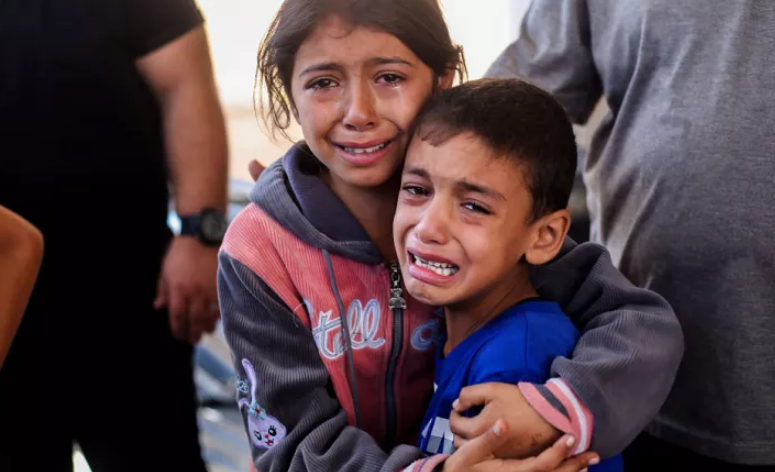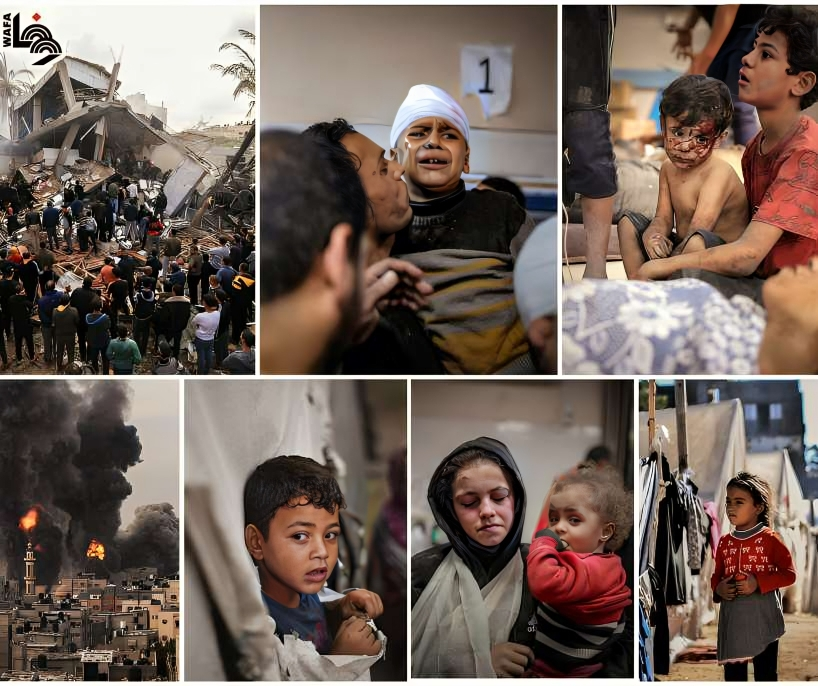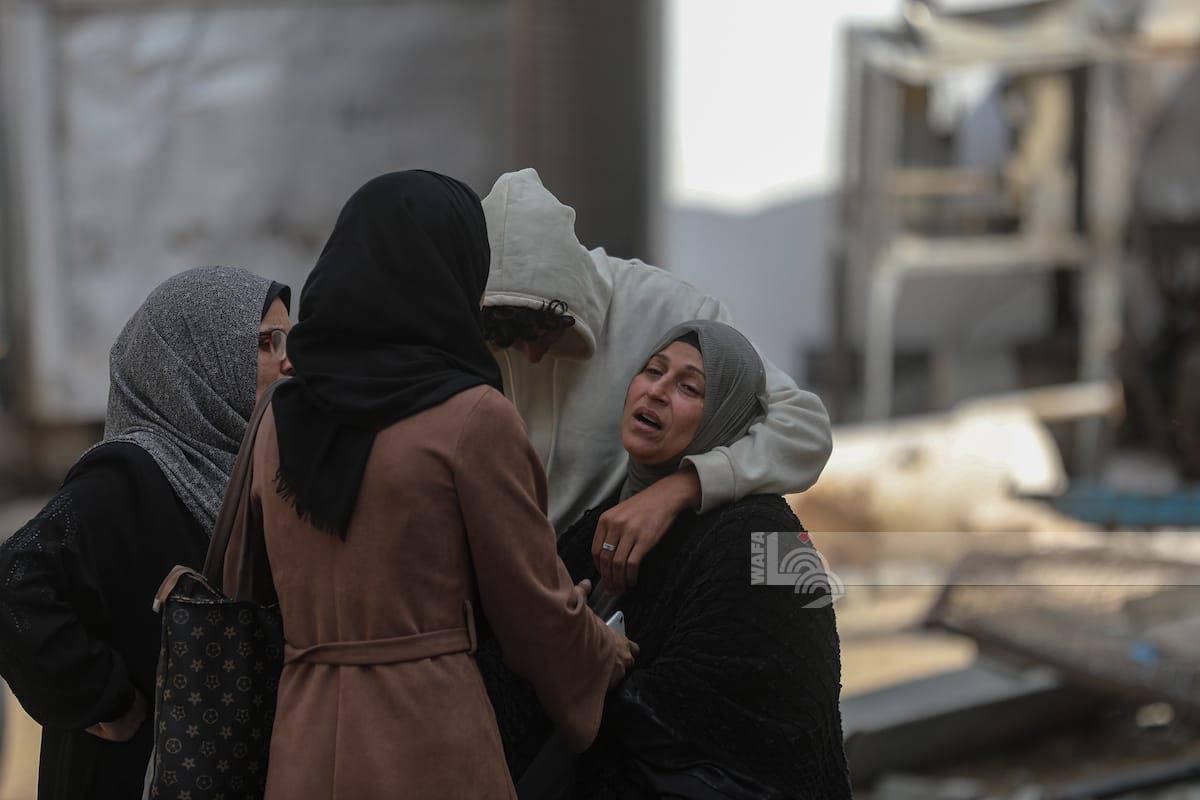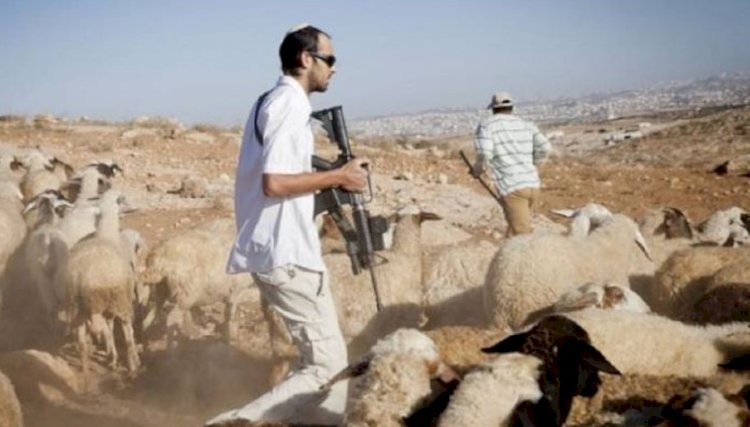GENEVA, Friday, February 2, 2024 (WAFA) - UNICEF, the United Nations Children's Fund, estimated that at least 17,000 children in the Gaza Strip are unaccompanied or separated from their parents as a result of the ongoing Israeli aggression on the Gaza Strip since October 7. "This corresponds to 1% of the overall displaced population - 1.7 million people.”
Nonetheless, this is just an estimation since it is nearly impossible to gather and verify information under humanitarian conditions in the Strip, said UNICEF State of Palestine Chief of Communication Jonathan Crickx at today's press briefing at the Palais des Nations in Geneva.
"I returned from Gaza this week. I met many children, each one with her or his own devastating story to tell,” he said.
He stressed that more than half of the 12 children he met or interviewed had lost a family member in this aggression. “Three had lost a parent, of which, two had lost both their mother and their father. Behind each of these statistics is a child who is coming to terms with this horrible new reality.”
He cited the story of some of the children he met with during his visit to the Strip, stating: "In a center where unaccompanied children are hosted and cared for, I also saw two very young children aged 6 and 4. They are cousins and their entire respective families were killed in the first half of December. The four-year-old girl - in particular - is still very much in shock.“
He expressed grave concern specifically over children in the North and the Center of the Gaza Strip, stressing that he met those children in Rafah. “We fear that the situation of children who have lost their parents is much worse.”
In the middle of a conflict, it is common for extended families to take care of children who lost their parents. But currently, due to the sheer lack of food, water or shelter extended families are distressed and face challenges to immediately take care of another child as they are struggling to cater for their own children and family, he said.
"In these situations, immediate interim care must be made available at scale while keeping children connected to or tracing their families so that they can be reunited when the situation stabilizes,” stressed UNICEF State of Palestine Chief of Communication Jonathan Crickx.
Citing the devastating story of another child in Gaza, he said: "Razan, like most of the children who went through such a traumatic experience, is still in shock. Each time she recalls the events, she falls in tears and gets exhausted. Razan's situation is also particularly distressing since her mobility is severely limited and specialized support and rehabilitation services are not available.”
"Children’s mental health is severely impacted,” he stressed. They present symptoms like extremely high levels of persistent anxiety, loss of appetite, they can’t sleep, they have emotional outbursts or panic every time they hear the bombings, he added.
He said that before the start of the aggression, UNICEF was considering that more than 500,000 children were already in need of mental health and psychosocial support in the Gaza Strip. Today, we estimate that almost all children are in need of Mental Health and Psychosocial Support (MHPSS), more than 1 million children, added Crickx.
"The only way to have this mental health and psychosocial support delivered at scale is with a ceasefire,” he stressed.
In 2022, the child protection cluster led by UNICEF provided this support to nearly 100,000 children. It is possible to scale up now. We have done it before. But it is not possible under the current security and humanitarian conditions, he warned.
He stressed that these children don’t have anything to do with this. “Yet they are suffering as no child should ever suffer. Not a single child, whatever the religion, nationality, language and race,” he stressed.
He said that no child should ever be exposed to the level of violence witnessed since then.
T.R.











